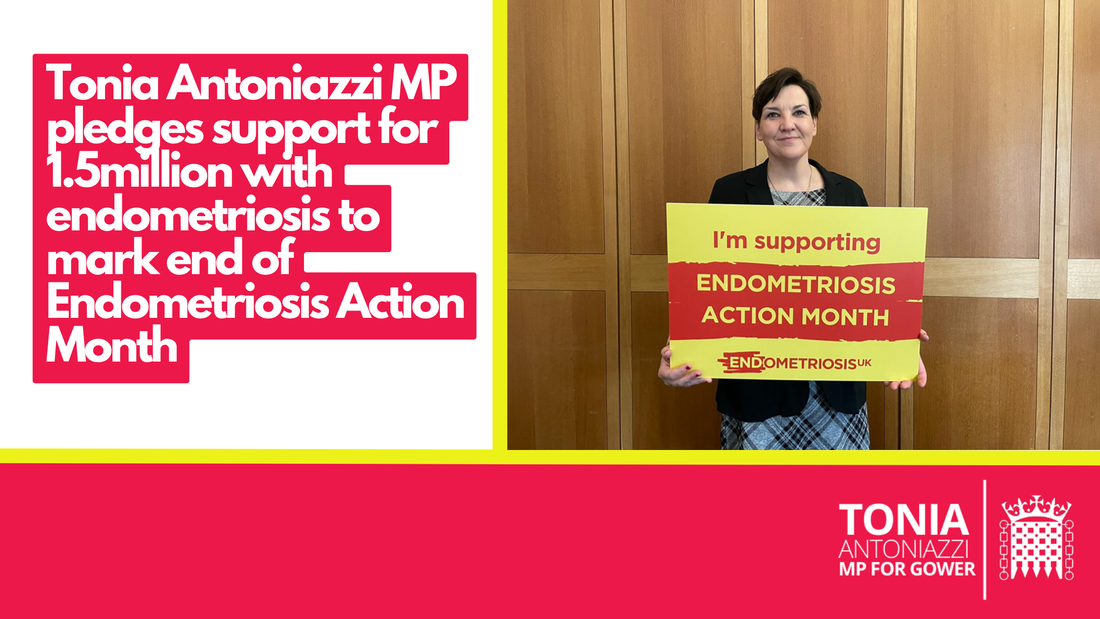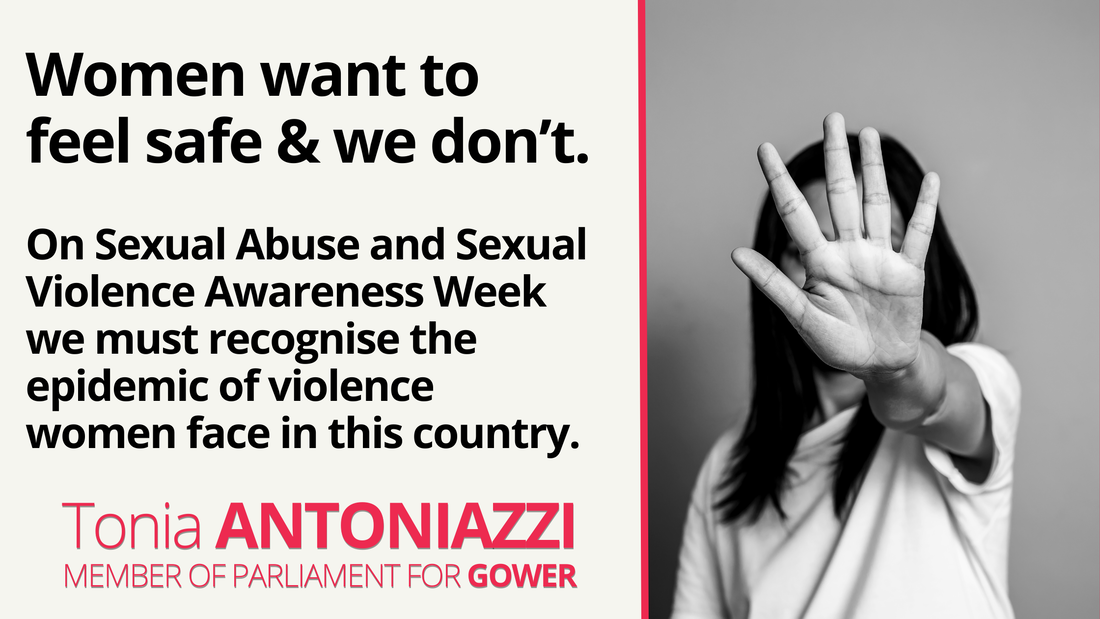|
March is Endometriosis Action Month – a time to raise awareness and drive change for the 1.5million women with endometriosis in the UK.
Tonia Antoniazzi MP has pledged support for the 1.5million living with endometriosis in the UK, as new statistics show that 75% would not go to a doctor with potential endometriosis symptoms. The research also shows that just 49% of the public are aware that endometriosis is a gynaecological health condition – a figure which drops to just 31% of men. Tonia Antoniazzi MP said: “Endometriosis affects 1.5million women in the UK, yet just 49% of the public are aware that endometriosis is a gynaecological health condition – a figure which drops to just 31% of men. Awareness is vital to ensuring everyone recognises the signs and symptoms of endometriosis, and when and how to seek help if they are experiencing symptoms”. The data, from a survey of 2,000 UK respondents conducted by Endometriosis UK, is being released to mark the start of Endometriosis Action Month (March 2023). Among those who said they would put off going to see a doctor in this situation, 24% said it was because they considered painful periods to be a normal part of life, while 23% said they would think it was “not serious enough to bother a doctor with”. Chronic pelvic pain and painful periods that interfere with your everyday life can be symptoms of endometriosis. This common, sometimes debilitating but often-ignored disease affects 1 in 10 women and those assigned female at birth, and can impact all areas of life include mental health, career and relationships. Common symptoms include: · chronic pelvic pain; · painful periods; · pain during or after sex; · painful bowel movements · pain when urinating · fatigue; and · difficulty getting pregnant. Those with one or more of these symptoms may want to keep a pain and symptoms diary to help them in discussion with their doctor to help diagnosis, Endometriosis UK advises. Getting an earlier diagnosis of endometriosis allows access to treatment and management options; without this, the disease may progress. The data also shows that half (51%) of women and those assigned female at birth would feel comfortable talking about periods with their parents or guardians. The figures varied when it came to talk to their spouse (73%), friends (67%), colleagues (33%), medical professionals (72%) or ‘someone I have just met’ (15%) - meaning many feel uncomfortable with such discussions. The symptoms of endometriosis can begin at puberty, and in some cases the impact may last for life, including after the menopause. Faye Farthing, Head of Communications at Endometriosis UK added: “Currently, it takes an average of eight years to get a diagnosis of endometriosis in the UK; without a diagnosis, treatments can't be accessed, and the disease may progress. While the taboo around menstrual health, and a lack of awareness of endometriosis, may contribute to this, it’s also essential that the Government takes action to ensure that healthcare practitioners recognise the symptoms, and that pathways and services are improved. We’re incredibly grateful to [Insert Name] MP for sharing their support during Endometriosis Action Month and pledging support to ensure all those with endometriosis have access to the right care at the right time”.
This week, my thoughts have been with the family and friends of Sarah Everard, as they watched her murderer receive a whole life sentence. I think about how afraid Sarah must have been. She was walking home.
My thoughts have also been with the family and friends of Sabina Nessa, as a man appeared in court accused of her murder. I think about the school children Sabina could have inspired over her teaching career. She was meeting a friend. Today, I think about the front cover of Friday 1st October's Northern Echo, and the lives behind the photos:
I think about the advice given to women this week, to challenge lone male officers who approach them. Another piece of behaviour-altering advice to women who have already been told, for example, not to walk alone but if they have to, to walk busy routes in well lit areas, like Sarah Everard did. Then I think about the future. I think about the women and girls who will go out this weekend - to the pub, to a friend's house, to the park, to the shop - and how they will feel about their safety. I think about the steps that need to be taken to prevent more names like Sarah Everard and Sabina Nessa becoming part of our vernacular. Back in July, Her Majesty’s Inspectorate of Constabulary and Fire & Rescue Services (HMICFRS) published an interim report which stated that fundamental system-wide change is needed in the Police to tackle the 'epidemic' of offending against women and girls. It recommended that the Government introduce a full-time national police lead for violence against women and girls , and that it should be given the same priority as terrorism. In their final report published in September, HMICFRS make 5 overarching recommendations:
I believe the report from Her Majesty’s Inspectorate of Constabulary highlights the Government’s continued failure to protect women and girls adequately. I fully support all of the recommendations in this report. I also continue to support calls for a comprehensive Bill on violence against women and girls. The safety of women and girls is essential to society. Thoughts, prayers and kind words are no longer enough. Advice on when not to go out, where not to go to or who not to talk to is no longer enough. The UK Government need to prove that they are serious about this issue, and soon, by implementing the recommendations of the HMICFRS report in full. I don't want to write another tribute or light another candle. Further reading
Recently, I took part in the latest 'Learn Live' session from UK Parliament's education team. To mark International Women's Day, the subject of the session was 'Women in Parliament'. Our discussion was centred on the experiences, past and present, of women in Parliament. You can watch the 30 minute session above!
The session is aimed at 11-16 year olds. |
News Archive
May 2024
Categories
All
|


